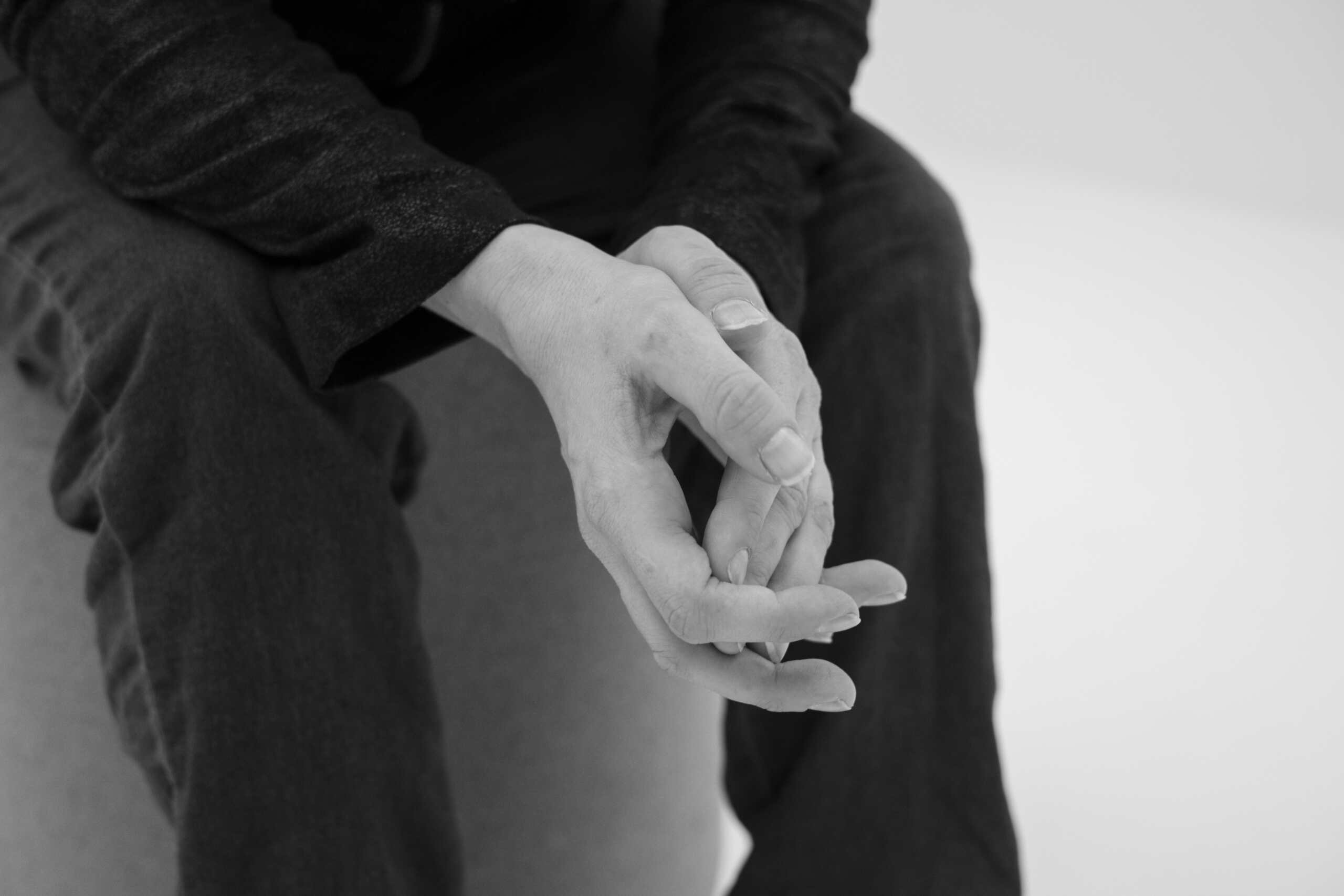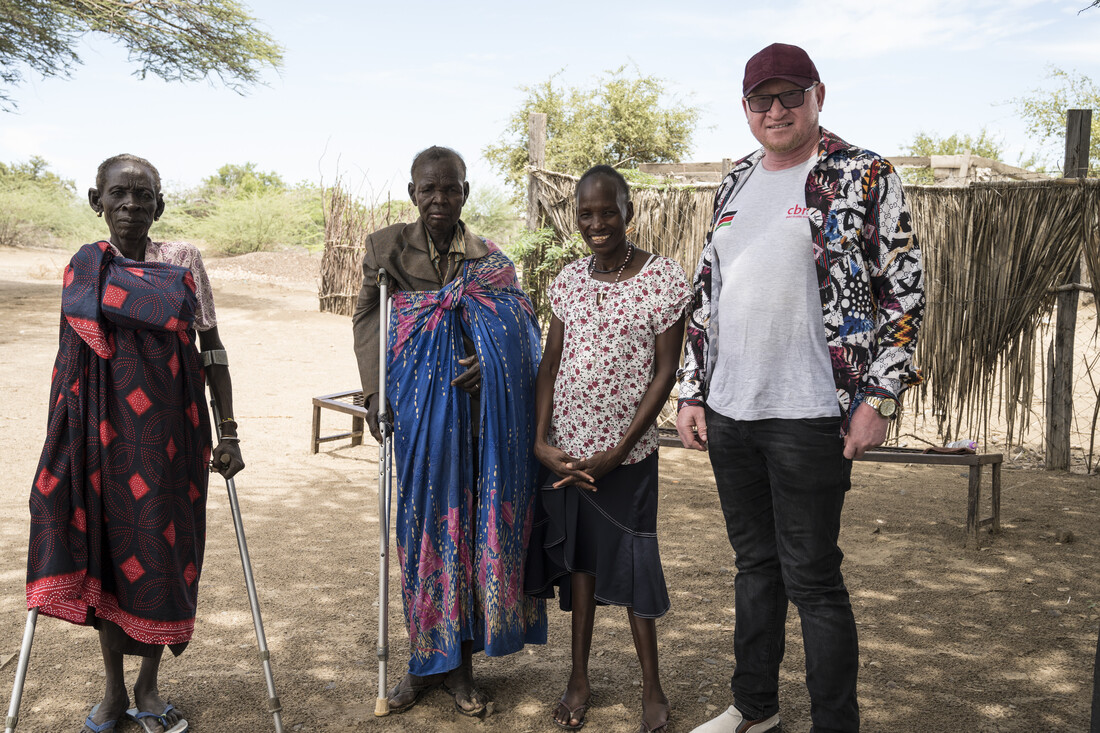CBM changed the life of people with disabilities in Dien Bien
Stories | February 21, 2022
Disability inclusion is at the heart of CBM Australia’s work; Thuong reflects on his experience with CBM’s project.
Disability inclusion is at the heart of CBM Australia’s work. CBM actively models inclusion by working with Organisations of People with Disabilities (OPDs) and people with disabilities. This was evident in one of our Vietnam projects, where the project team recruited Thuong – a local man with a disability – as the project officer in their project in Dien Bien city. He played a critical role in promoting disability inclusion in the project, connecting with people with disabilities, understanding their needs and finding ways to best support them.
Thuong reflects on his experience with CBM’s project.
I have a physical disability. I might be luckier than the others because I have a stable job which suits my ability. Before I got involved in the project, my life centred around my little family in Dien Bien city. At that time, I didn’t really know anything about social issues or disability in the community.
However, things changed when I became a member of the project management board under a CBM-funded project. I was specifically in charge of disability inclusion component. I got great support from CBM through short training courses in project management, child safeguarding, gender equality and disability inclusion. I also got training in soft skills and skills to assist people with different types of disabilities.
I became a Trainer of Trainers in disability inclusion and started training health workers and government health department members. I understood the difficulties and challenges encountered by people with disabilities, as well as their needs. I also got to know more about child and adult safeguarding, especially related to people with disabilities and people from ethnic minorities who are marginalised.
I became aware about gender equality, especially for women and girls in the ethnic minority groups, as well as people living in poverty and people with disabilities. All these things were new to me, but really changed my knowledge and attitude.
Participating in the project gave me my first chance to work with government officers to enhance disability inclusion in the community. I was able to put forward ideas to develop project activities related to people with disabilities. I was encouraged to tightly co-ordinate with the government to better understand policies supporting people with disabilities. I also learned the procedures to access support systems and expand the supporting network in the community. This gave me the confidence and knowledge to support people with disabilities.
In the city, most people with disabilities are poor or nearly poor! Many are also ethnic minorities living in remote areas where there is limited access to information or provincial policies. They are often unaware of the steps or procedures to access support. By working on livelihood activities in the project, I got to know families that included people with disabilities. I understood the severe difficulty that especially people with disabilities in remote areas have to cope with – financial challenges, shortage of information, education and employment opportunities. Challenges that often lead to early marriage, health problems and poverty.
The slogan “nothing about us without us” became our motto when I met and communicated with people with disabilities and their families about their needs. I was trying to connect them with the available support services in the province.
In 2018, on a monitoring visit of livelihood project, I assisted a student with low vision to apply for a disability card, giving him access to discounted school fees – so his family didn’t have to worry anymore about school financing. I also supported other families of people with disabilities to get their household certified as poor, giving them access to free health treatment and hospitals. This helped to eliminate the bad practice of self-treatment or visiting spiritual healers instead of doctors because they were scared of expensive hospital fees and had no health insurance. Lastly, I assisted people with disabilities to access support devices, such as wheelchairs and canes, and so on, and eye patients to access eye examinations and surgeries.
Thanks to the CBM project, I have become a different person who is more mature in knowledge and attitude, not only in terms of disability support, but also in other sectors. Support for people with disabilities in the city has improved, with more concern from government departments. Policies and supporting funds for people with disabilities have also changed, and the words “disability support” appear more often in quarterly and yearly reports of health units.
I am really happy about the changes that have taken place. CBM has definitely changed the life of people with disabilities in the city. Thank you so much!
https://www.cbm.org.au/stories/cbm-changed-life-of-people-with-disabilities-in-dien-bien
Related Stories

Week 7 – Lent Series 2025
A solidarity of love, relationship and sacrifice. A solidarity that is profound and astounding. As we draw near to Good Friday, we remember Jesus’ love and...

Week 6 – Lent Series 2025
Solidarity Leads to Partnership Partnership with people with disabilities is working alongside them to build an inclusive and accessible world. CBM Australia works to improve the...

Week 5 – Lent Series 2025
Solidarity: Seeking to Listen and Understand Action that is taken in solidarity finds its origins in listening. Jesus’ actions and ministry flowed out of relationship and...
